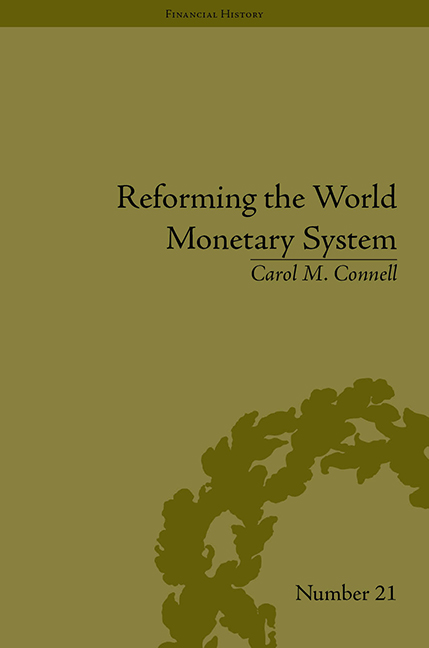Book contents
- Frontmatter
- Contents
- Acknowledgements
- List of Figures and Tables
- Introduction
- 1 A Crisis in Confidence
- 2 Fritz Machlup, his Research and Methodology
- 3 Robert Triffin and the Triffin Plan
- 4 William Fellner and the Intersection of Macro and Microeconomics
- 5 Why Economists Disagree: The Role of Framing in Consensus Building
- 6 ‘Assuring the Free World's Liquidity’ through Multiple Reserve Currencies
- 7 Milton Friedman and the Arguments for Flexible versus Fixed Exchange Rates
- 8 Collaboration with the Group of Ten
- 9 Adjustment Policies and Special Drawing Rights: Joint Meetings of Officials and Academics
- 10 From the Bellagio Group to the Bürgenstock Conferences
- 11 From the Bellagio Group and Joint Conferences of Officials and Academics to the Group of Thirty
- 12 Reassessing the Bellagio Group's Impact on International Monetary Reform
- 13 The Impact of the Bellagio Group on International Trade and Finance Scholarship from the 1960s to the Present
- Conclusions
- Notes
- Works Cited
- Index
5 - Why Economists Disagree: The Role of Framing in Consensus Building
- Frontmatter
- Contents
- Acknowledgements
- List of Figures and Tables
- Introduction
- 1 A Crisis in Confidence
- 2 Fritz Machlup, his Research and Methodology
- 3 Robert Triffin and the Triffin Plan
- 4 William Fellner and the Intersection of Macro and Microeconomics
- 5 Why Economists Disagree: The Role of Framing in Consensus Building
- 6 ‘Assuring the Free World's Liquidity’ through Multiple Reserve Currencies
- 7 Milton Friedman and the Arguments for Flexible versus Fixed Exchange Rates
- 8 Collaboration with the Group of Ten
- 9 Adjustment Policies and Special Drawing Rights: Joint Meetings of Officials and Academics
- 10 From the Bellagio Group to the Bürgenstock Conferences
- 11 From the Bellagio Group and Joint Conferences of Officials and Academics to the Group of Thirty
- 12 Reassessing the Bellagio Group's Impact on International Monetary Reform
- 13 The Impact of the Bellagio Group on International Trade and Finance Scholarship from the 1960s to the Present
- Conclusions
- Notes
- Works Cited
- Index
Summary
Introduction
The title of this chapter – ‘Why Economists Disagree’ – takes its name from Fritz Machlup's speech before the American Philosophical Society on 12 November 1964, five months after the fourth Bellagio Group conference. In his speech, Machlup explained his decision to bring together economists from eleven countries, many of them chosen because they were well-known advocates for divergent, often feuding, schools of thought on the problems and solutions to problems facing the international monetary system in the 1960s, for an ‘inquiry into the sources of disagreement on international monetary prescriptions’. Like scientists, Machlup said, ‘Economists also have an exact-construct world, created for purely theoretical analysis; but no outsider cares what they do with it or appreciates the broad agreement of the analysts about the theoretical system that constitutes their discipline. The economists’ work becomes known only where it deals with the real-life world, in which most things are unknown and almost everything is uncertain’. Machlup was interested in a process whereby participants would collaboratively define the problem they wanted to solve, examine possible solutions in light of the desired outcome, and allow themselves the freedom to consider hybrid or compromise solutions. The group that came to be known as the Bellagio Group met eighteen times between 1964 and 1977 in Bellagio at Lake Como, Washington, DC and Princeton, as well as in nine European centres.
- Type
- Chapter
- Information
- Reforming the World Monetary SystemFritz Machlup and the Bellagio Group, pp. 63 - 82Publisher: Pickering & ChattoFirst published in: 2014



